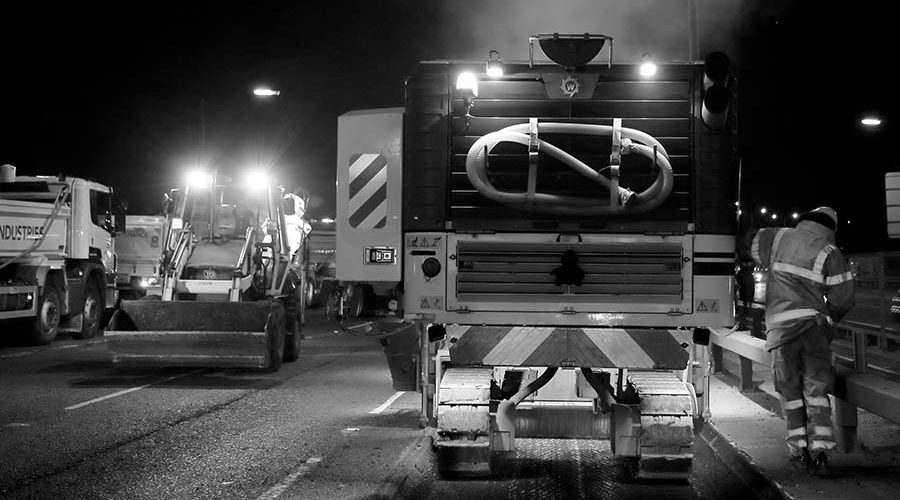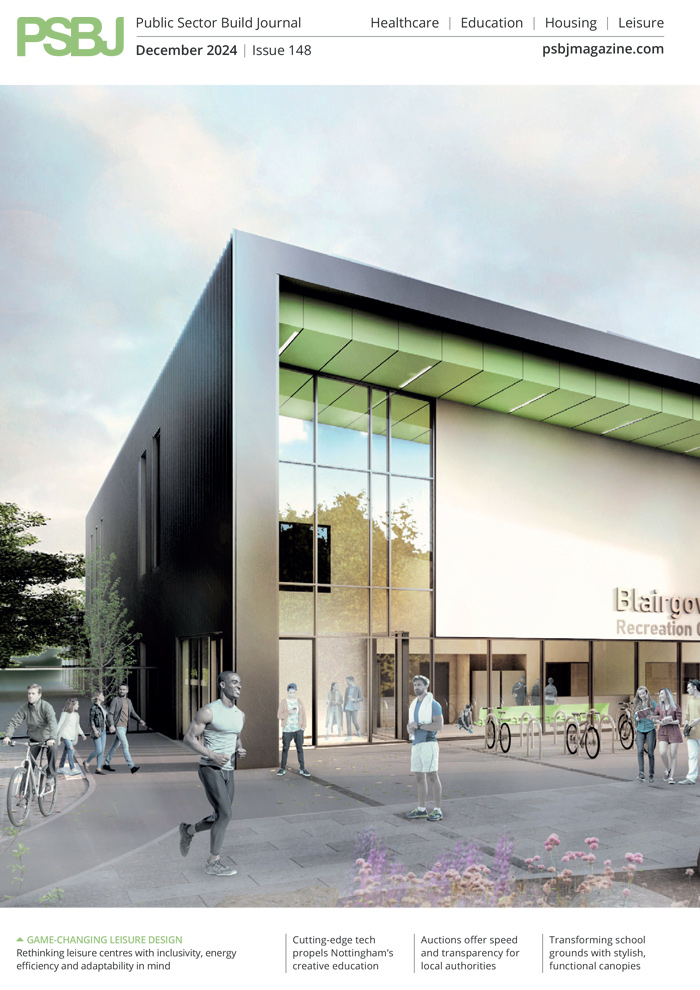Amid the coronavirus pandemic and following the Government’s recent £27.4bn pledge as part of the Road Investment Strategy, the highways sector is under ever-greater pressure to step up health and safety standards and practices.
Aggregate
From utilising the latest communications technology, through to the adoption of automated technology, the industry is responding with a whole range of new risk-averse initiatives that are designed to make high-risk activities; including road surfacing process, as safe as possible. Here, Paddy Murphy, Managing Director of Aggregate Industries’ Contracting Division, tells you all you need to know.
One of the most fundamental ways to improve health and safety within the highways sector has been through investment in new technology to reduce the exposure of our people on the network – namely the most important pieces of kit in the road surfacing armoury – rollers and pavers.
Aggregate Industries’ Contracting Division is continuously working with manufacturers to develop revolutionary and state-of-the-art plant to make traditional processes much safer, more reliable and efficient.
Based on the principle of incorporating health and safety into the design of all new equipment coming to market, in recent years, we have seen everything from improved chip spreading operation with the KS12-16 Extendachip Spreader, through to smart plant such as the BW 154 pivot-steered tandem rollers to ensure operative visibility, stability and safety.
Another great example of investment in technological innovation is Aggregate Industries’ collaboration with CRH, Bomag and Vision Techniques’ to pilot its auto-braking radar system – previously used in the waste management industry. The system is linked into our roller-mounted forward- and rear-facing cameras; to automatically applying the vehicle’s brakes if it detects an object or person within a defined exclusion zone.
Aggregate Industries is now working with all of its supply chain partners to bring industry change by demonstrating that investing and trialling R&D in this area can have a really positive impact on safety.
Improving site communication
Whilst investing in new paving machinery is key to upholding the highest processes of site safety, there are also much simpler changes that can have a significant impact. For example, after introducing two-way radio headsets across all our sites nationwide, background noise was reduced by over 82 dB, supporting the protection of hearing.
The headsets have helped to facilitate clear communications over 10km, removing the need to walk around site or shout within closer proximities, as well as enabling for an immediate safer response as and when required. This contributes to the overall smooth running of construction projects, because the two-way radio headsets allow interaction with site HGVs as required, improving efficiency and safety of workers across the board.
Data is king
Improvements in automated data capture are also helping to raise health and safety standards across our operations. While it’s no secret that road construction projects create a mountain of data (no matter the size), traditionally, the road surfacing process has required at least one or two technicians manually working alongside each surfacing gang to gather and record data on everything from material temperatures to ride profile. This not only exposes them to the dangers of working in close proximity to live traffic, other workers and construction vehicles, but they face a myriad of other risks, including lone working and hot material interface.
However, we’re increasingly seeing this 30-year-old method overhauled by using automation in machinery. For instance, Aggregate Industries have recently incorporated state-of-the-art Automated Intelligent Testing (AIT) equipment to our pavers, rollers and survey vehicles are being fitted with GPS, infrared sensors and a data recording unit to record data throughout laying practices and post-completion. By using the AIT system, pavers and rollers can be linked together to manage pavement compaction, by recording the rolling temperature and the number of passes to create an even and consistent compacted surface across the whole paved area.
Naturally, this system has provided additional benefits: a rise in productivity, improved working practices and increased road worker safety by effectively removing the need for technicians in the data capture process altogether.
A safer sector
In spite of this current period of disruption and uncertainty faced by the highways industry, once work on the UK’s most ambitious road construction programmes resumes in earnest, health and safety will be more important than it has ever been in the sector. Taking the time now to embed strong health and safety behaviours and best practice at the core of everything we do as an industry – whether that’s through implementing new working practices, better communications processes, or investing in new safer, smart technology – will ensure that we’re well-positioned to deliver the infrastructure needed to kick-start the economy in a post-coronavirus world.

Paddy Murphy is the Managing Director of Contracting at Aggregate Industries, one of the UK’s leading national surfacing contractors, with over 85 years of experience delivering asphalt and hydraulically bound pavement solutions UK-wide. Paddy has more than 20 years of experience in the highways industry, and has spent the past decade at Aggregate Industries making health and safety his number one priority.









